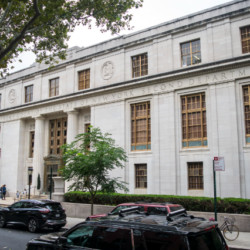
New York State Bar Association issues AI usage guidelines for legal practice

Richard Lewis, president of the New York State Bar Association, highlights the critical balance between harnessing AI's potential in legal work and safeguarding client confidentiality and ethical integrity. Photo courtesy of NYS Bar Association
Leave a Comment
Leave a Comment



